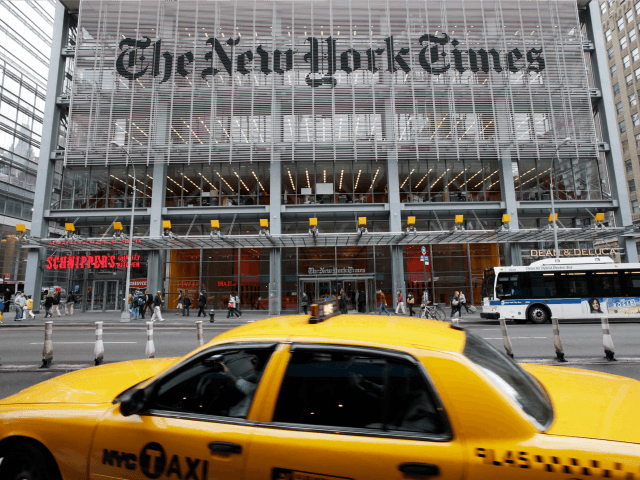The New York Times has banned its reporters and editors from promoting their political views on social media, according to new guidelines released by the company.
“If our journalists are perceived as biased or if they engage in editorializing on social media, that can undercut the credibility of the entire newsroom,” declared the New York Times in the public post. “We’ve always made clear that newsroom employees should avoid posting anything on social media that damages our reputation for neutrality and fairness. This memo offers more detailed guidelines.”
“In social media posts, our journalists must not express partisan opinions, promote political views, endorse candidates, make offensive comments or do anything else that undercuts The Times’s journalistic reputation,” they warned. “Our journalists should be especially mindful of appearing to take sides on issues that The Times is seeking to cover objectively.”
The Times also encouraged employees to avoid posting customer service complaints on their accounts, adding, “you’ll most likely be given special consideration because of your status as a Times reporter or editor,” while employees must also now avoid “joining private and ‘secret’ groups on Facebook and other platforms that may have a partisan orientation.”
“You should also refrain from registering for partisan events on social media,” they continued. “If you are linking to other sources, aim to reflect a diverse collection of viewpoints. Sharing a range of news, opinions or satire from others is usually appropriate. But consistently linking to only one side of a debate can leave the impression that you, too, are taking sides.”
The public post also contained several quotes from high-ranking New York Times employees,referencing the new guidelines.
In a quote from the newspaper’s Chief White House Correspondent, Peter Baker, he declared, “It’s important to remember that tweets about President Trump by our reporters and editors are taken as a statement from The New York Times as an institution, even if posted by those who do not cover him. The White House doesn’t make a distinction. In this charged environment, we all need to be in this together.”
In another quote, reporter Nick Confessore expressed, “The reality is that my Twitter account is a Times account. The Times does not control it, but the Times is held accountable for what appears on my feed.”
“Indeed, the casual reader interprets my social accounts as an extension of our digital platforms, for good and ill. I think all of us at the Times need to embrace this as the price of our employment by a major media institution,” he continued. “(And in fairness, to the extent my Twitter account is influential or widely read, it is largely because I am employed by The Times.)”
Correspondent Rukmini Callimachi also used the new guidelines memo to discuss “abuse,” proclaiming, “I used to get really upset and respond to abuse — which only made it worse. What I finally discovered is that if I just aggressively block the abusive people, I can control the flow — and that’s, I think, because people who speak that way to women are generally followed by other people who think it’s O.K. to use crass words.”
“By blocking anyone and everyone who uses abusive terms, I am able to halt the conversation,” Callimachi concluded. “I think this is especially important as a strategy for women, at a time when people think that rape memes are a good way to respond to a story they don’t like by a female New York Times writer.”
Charlie Nash is a reporter for Breitbart Tech. You can follow him on Twitter @MrNashington and Gab @Nash, or like his page at Facebook.

COMMENTS
Please let us know if you're having issues with commenting.